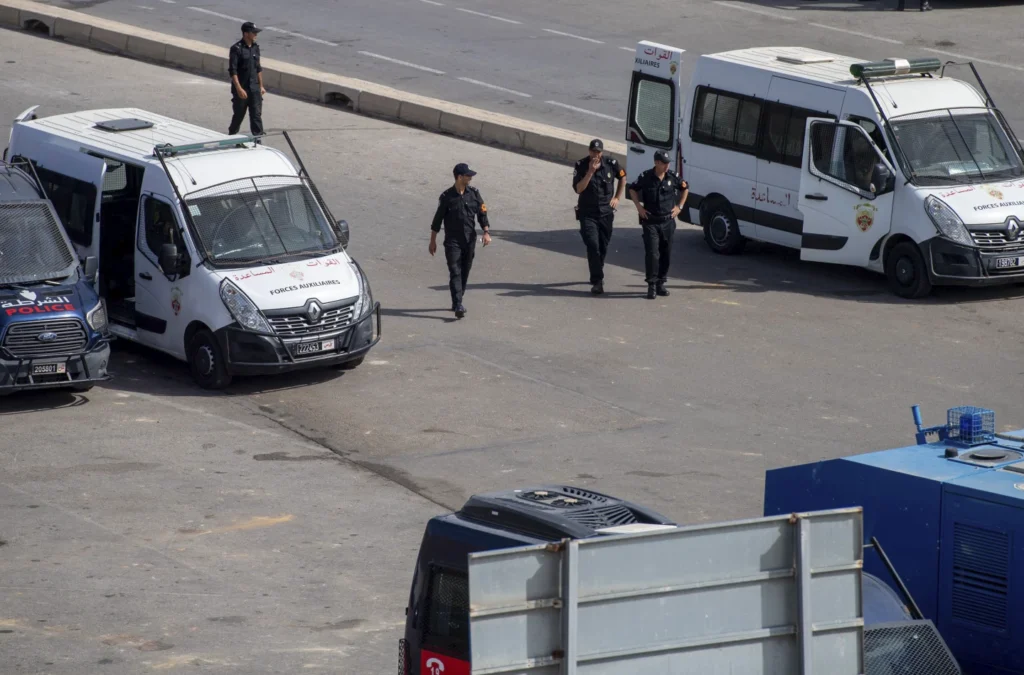Moroccan authorities successfully halted an attempted mass migration into Spain’s North African enclave of Ceuta, after widespread calls on social media urged people to cross the border.
Security forces, stationed along the Moroccan-Spanish border, prevented groups from breaching the heavily fortified fence that separates the two territories, officials said.
Online messages had circulated in the days leading up to the event, encouraging individuals to head to Ceuta. Many responded, with footage showing large crowds gathered in the hills near the Moroccan border town of Fnideq. Helicopters flew overhead as security forces intensified their presence on the ground.
Authorities in both Morocco and Spain had been preparing for the surge. “Spanish and Moroccan security efforts over recent days allowed the situation to be brought under control,” the Spanish Interior Ministry stated on Monday.
Some groups attempted to breach the fence, but none made it into Spanish territory, thanks to the joint efforts of Moroccan and Spanish security personnel.
Arrests and Increased Security
These arrests, coordinated by Morocco’s General Directorate for National Security (DGSN), were part of a broader effort to prevent unrest along the border.
On Monday, a heavy security presence remained in place. Scores of personnel from both Morocco and Spain continued to patrol the border, ensuring no further attempts to cross.
Local human rights activist Achraf Mimoun explained that the groups gathering at the border were diverse. “Many of those who headed to the border were Moroccans of all ages, including minors,” said Mimoun. He also noted that many migrants were from sub-Saharan Africa, Algeria, and other regions, waiting for an opportunity to enter Europe.
“This is not the first anonymous invitation promoted on social media networking sites,” Mimoun stated. He pointed to the social and economic pressures driving large groups of people to take extreme measures to breach the border fence.

Families, desperate for better opportunities, often encourage their children to migrate to Europe. Stories of past successes only fuel these attempts.
Ceuta, along with its neighboring enclave Melilla, has been a significant focus for migrants and refugees trying to reach Europe. These territories, located along the Mediterranean coast, are often targeted by those fleeing poverty or political instability in their home countries. Migrants either risk climbing the barbed wire fences surrounding the cities or try to reach the enclaves by sea.
The migration pressure on these regions has increased in recent years. Moroccan authorities have played a key role in controlling the flow of people attempting to cross into Europe.
According to the Moroccan Interior Ministry, over 45,000 migration attempts have been prevented since the beginning of the year. In August alone, more than 11,000 attempts were stopped around Ceuta and another 3,000 near Melilla.
Social Media’s Role in Mass Migration
Social media has proven to be a powerful tool in organizing these mass migration attempts. Recent incidents, like this one, were prompted by anonymous posts encouraging people to seize the opportunity to cross the border.
The desperation of many migrants is evident, and their actions reflect the deep hope for a better life across the border.
Last month, thousands of migrants tried to cross into Ceuta, with hundreds attempting to swim around the patrols along the coastline. Many of those involved were young people, some still in their teens, illustrating the intense pressures driving these dangerous actions.
READ ALSO: Government Expenditure Reaches GH¢101.21 Billion in the First Half of 2024




















